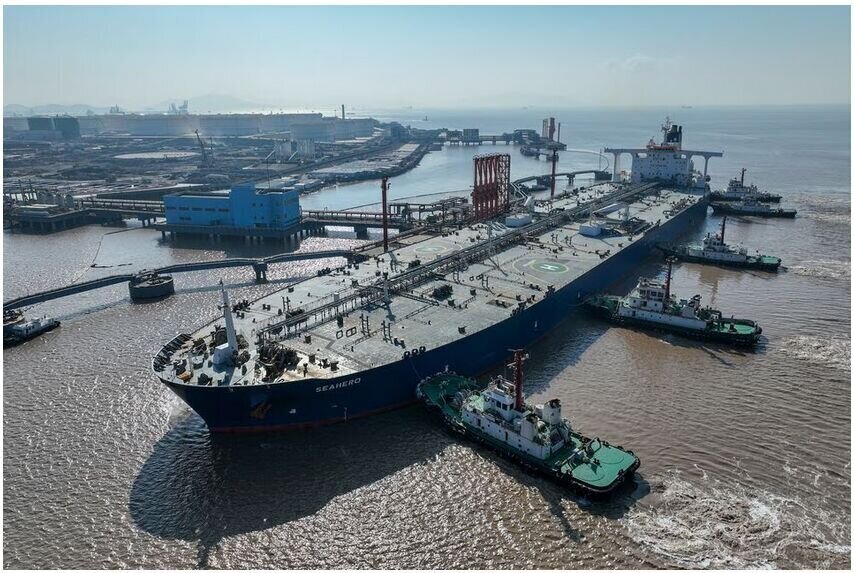China’s import of Iranian crude hits 8-month high

TEHRAN - China’s independent refiners have increased their crude imports from Iran by 4.3 percent in June to an eight-month high of around 6.1 million metric tons.
Iranian crudes, which are much cheaper than Russian ESPO crudes, have gained more popularity among independent refineries in recent months, S&P Global Commodity Insights reported.
China's independent refiners, mainly in eastern Shandong province, increased their Iranian crude imports by 4.3% in June to an eight-month high of around 6.1 million mt to cut feedstock costs and combat weak refining margins, according to sources and S&P Global Commodity Insight data July 4.
The volume was the highest since October 2023, when it hit 6.22 million mt, the data showed.
Iranian crude accounted for about 65.7% of the total feedstock portfolio of small-sized independent refineries in Shandong in June, compared with 54.2% in May.
June's higher imports were mainly due to feedstock requirements of the independent refineries, which have been struggling with weak refining margins for most of 2024 so far, and are more selective with their feedstock, sources said.
Iranian crudes, which are much cheaper than Russian ESPO crudes, have gained more popularity among independent refineries in recent months.
"Other crudes are not [as cheap as] Iranian crudes," said a trader source.
Early deals for August-arrival ESPO sold to China were heard at discounts of around 60-80 cents/b to ICE Brent, according to trade sources.
In comparison, Iranian Heavy was at a discount of around $9/b to ICE Brent on a DES Shandong basis, about $3/b lower than that of $5-$6/b for Iranian Light crude on the same basis, making it more attractive, especially under the weak margins, sources said.
More Iranian Heavy crude cargoes have been arriving in the Shandong market than Iranian Light crude, due mainly to the relatively lower prices, sources said.
Data from local energy information provider OilChem showed the monthly average margin at Shandong independent refineries, from processing imported crudes, fell 32.3% on the week to Yuan 83.5/mt July 4, amid high crude benchmarks coupled with lower oil product prices.
The average utilization rate also dropped marginally by 0.4 percentage points on the week to around 50.5% on July 4, OilChem data showed.
This is their lowest utilization since May 2022, when China's financial and industrial center Shanghai was locked down to control COVID-19.
Imports up 22% in H1 2024
In the first half of 2024, combined feedstock imports from Iran rose 22.3% on the year to 30.2 million mt from 24.7 million mt, Commodity Insights data showed.
These cargoes accounted for around 52.2% of feedstocks imported by independent refiners during the same period, growing from a low base of 35.8% in the corresponding period last year.
In comparison, imports from Russia fell 31.5% on the year to 20.78 million in H1 2024.
Iranian cargoes are usually masked as blended crudes that originate from Malaysia, such as Mal Blend as in the tables.
Iran output rising
Iran boosted its crude oil production by more than 70% over the past three years to 3.6 million b/d, following a $34 billion investment in 155 projects, Oil Minister Javad Oji said on June 24.
Oji was quoted by oil ministry news service Shana at the inauguration ceremony of a project in the onshore western oil field of Danan, which added 11,000 b/d to its output after 11 wells were drilled for $135 million, increasing its processing and production capacity to 19,000 b/d.
Independent refinery sources said the Iranian cargoes available in the market were mostly heavy crude, which was more economical, with slightly less light crude.
Commodity Insights collects information from trade and independent refinery sources, Kpler, shipping brokers, port sources, and S&P Global Commodities at Sea, and the information has been confirmed by sources with knowledge about the matter.
Leave a Comment